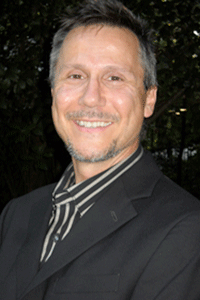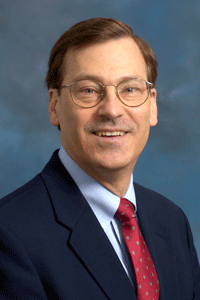$500,000 grant from NSF focuses on delivery of nanoparticles to cells to kill drug-resistant bacteria
September 16, 2010

Alan Decho
 Brian Benicewicz
Brian Benicewicz
Antibiotics bound with nanoparticles may be just what the doctor orders one day to treat infections, especially those that are drug resistant.
A $500,000 grant from the National Science Foundation to researchers at the University of South Carolina will fund a study on how nanoparticles can be used to change the way that antibiotics are delivered to cells.
USC NanoCenter researchers from two different backgrounds – microbiologist Dr. Alan Decho of the Arnold School of Public Health and nanochemist Dr. Brian Benicewicz of the College of Arts and Sciences – will collaborate on the study that is the nation’s first to examine whether antibiotics infused with nanoparticles can cure infections that have become resistant to medicines currently available.
“An emerging concern in health is the growing resistance of bacteria to antibiotics,” said Decho, the principle investigator on the project and director of the Microbial Interactions Laboratory in the Arnold School’s department of environmental health sciences.
“A new approach to manipulating these very small, but deadly infections involves the use of nanoparticles,” he said. “Bacteria are incredibly small targets to begin with, but nanoparticles are 100 times smaller than bacteria. Despite their size, they can be very potent.”
Decho likened current treatments for bacterial infections to “shooting a target with a BB gun; the damage is likely to be small.” But an antibiotic infused with nanoparticles could be “like a blast from a 12-guage shotgun and result in total destruction.”
Decho studies infections caused by biofilms, which are composed of bacterial cells surrounded by slimy, protective coatings of acids and proteins. Biofilms attach to tissues, organs and artificial implant devices and often lead to infections that are difficult, if not impossible, to treat.
Benicewicz, the project’s co-principal investigator, is an expert on polymer nanocomposites and brings the expertise to “engineer such minute pieces of machinery, literally atom by atom, to create nanoparticles whose design and capability was simply unthinkable a mere decade ago,” Decho said.
The study will allow nanoparticles to be engineered as “small machines that will carry large numbers of antibiotic molecules to a single bacterial cell, then release and kill the cell,” Decho said.
Resistant microbial infections are widespread in hospitals and communities, and recalcitrant biofilm infections are believed to have an economic impact of up to $30 billion. Conservative estimates indicate that more than 100,000 people die from hospital-acquired and persistent infections, he said.
“Clearly, new approaches are needed to treat these infections. Nanoparticles bound to antibiotics may be unique in being able to penetrate the protective biofilm and reach infection-causing bacteria more efficiently than antibiotics alone,” Decho said.
The collaboration between Decho and Benicewicz dovetails nicely with USC’s ongoing efforts in nano-environmental research, said Dr. Tom Vogt, USC NanoCenter director.
“The grant from NSF is an important indication that this kind of research is in a strong growth phase,” he said.
The NanoCenter assisted the scientists in their collaboration by providing funds for a post-doctoral researcher to collect key preliminary data for the grant to be funded and then connected Decho and Benicewicz with the David Murdock Research Institute in Kannapolis, N.C., to accelerate their research, Vogt said.
“We are delighted that the NanoCenter’s investment is paying off in the research arena and cautiously bullish on the commercial potential of this science in healthcare, medicine and environmental technologies,” he said.
“Brian Benicewicz and Alan Decho are both excellent scientists who are not afraid of leaving their ‘academic comfort zones’ and meet on ‘paths less traveled,’ ” he said. “They epitomize the kind of researchers that will profit from university-wide centers such as the NanoCenter.”
The Arnold School is a partner in the Nanoenvironmental Research and Risk Assessment Center of Economic Excellence. To learn more about this CoEE, visit http://www.sccoee.org/nanoenvironmentalresearch.asp



_01.jpg)
_02.jpg)